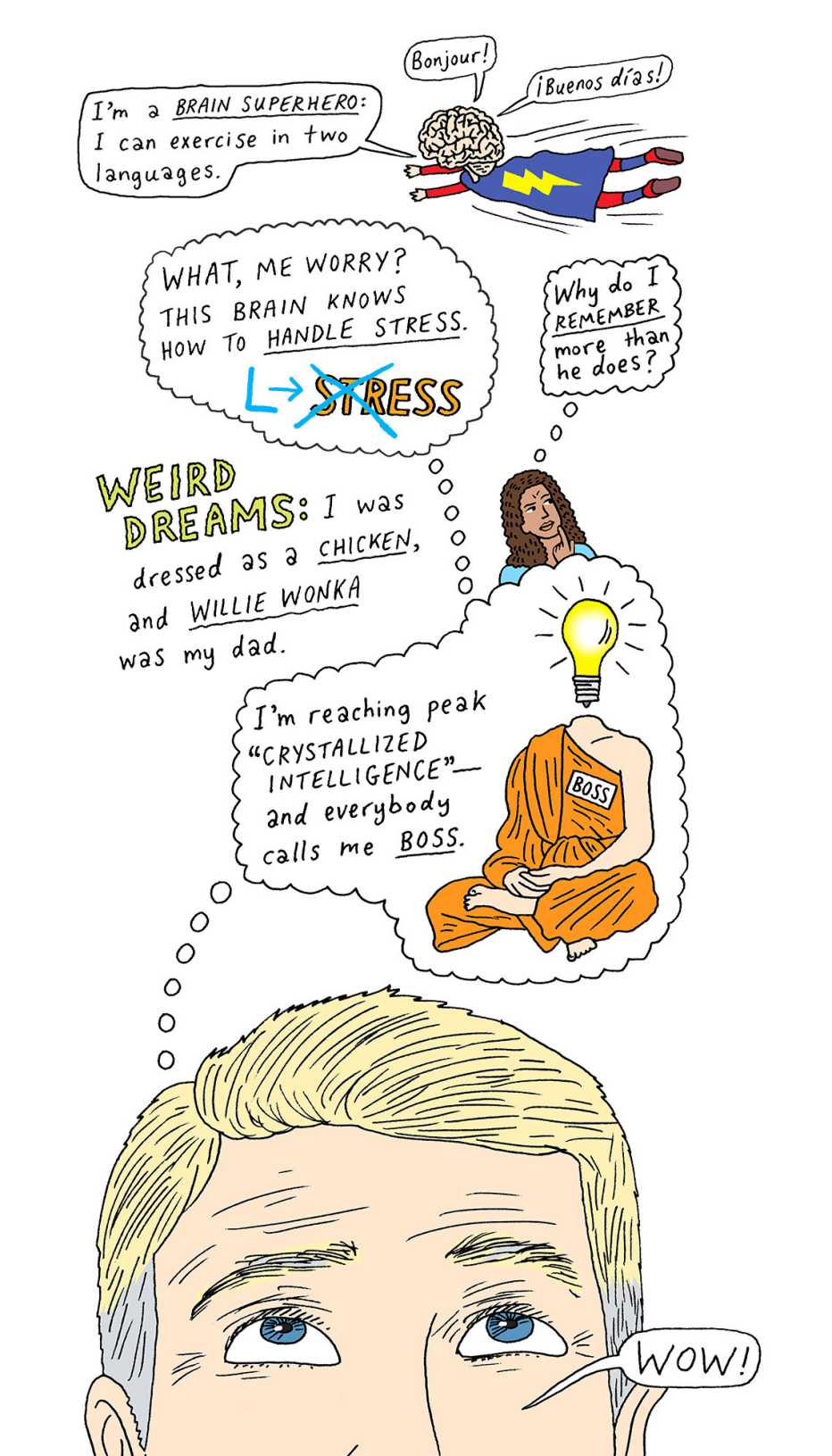AARP Hearing Center


The good news at 50-plus: By many measures, your thinking has never been better. People know it.
The reality check at 50-plus: Lifestyle choices may be hurting your gray matter in silent ways. You’ll want to change that.
- Your reasoning skills are going strong. “Crystallized intelligence” refers to your ability to use learned knowledge and experience to solve problems. Research shows that you’re as strong as ever in this key form of thinking. No wonder the average Fortune 500 CEO gets hired at age 50 — and that airline pilot Chesley “Sully” Sullenberger was 57 when he successfully landed that jetliner on the chilly Hudson River in 2009.
- Your memory center is still steady. Yes, it’s true that the human brain loses 5 percent of its volume per decade starting in the 40s. But relax: That doesn’t have any impact on your ability to think or function. In particular, your hippocampus — a key memory center in the brain — is holding steady in size, as is your brain’s white matter, the crucial nerve bundles that carry signals from one part of the brain to another.
- You don’t freak out as easily. The brains of older adults process emotions in a healthier way. Your “Take it easy” prefrontal cortex is now hooked up with your more reactive “OMG!” amygdala. The result is that you respond less strongly to negative situations and get a bigger charge out of positive stuff.
- … but stress hasn’t gone away. One in 4 people in their 50s say their stress is going up, up, up. Money, work and — oh, yes — the future of our nation were top stress-makers for U.S. adults in 2017. Don’t let the tension morph into depression. One recent study showed that just an hour a week of easy exercise lowered the risk for depression by 12 percent.
- Hormone changes can help. Why are wives always saying, “We already talked about this”? There’s a reason why husbands have trouble remembering their wives’ words. It’s hormones. In a study, women ages 45 to 55 outperformed their male counterparts in a series of memory tests, and premenopausal women outperformed postmenopausal women, possibly due to a decline in estrogen after menopause.


LIMITED TIME OFFER Memorial Day Sale! Join AARP for just $11 per year with a 5-year membership Join now and get a FREE gift. Expires 6/4



































































More From AARP
Your 5 Senses at 50+
What to expect with your sensory function